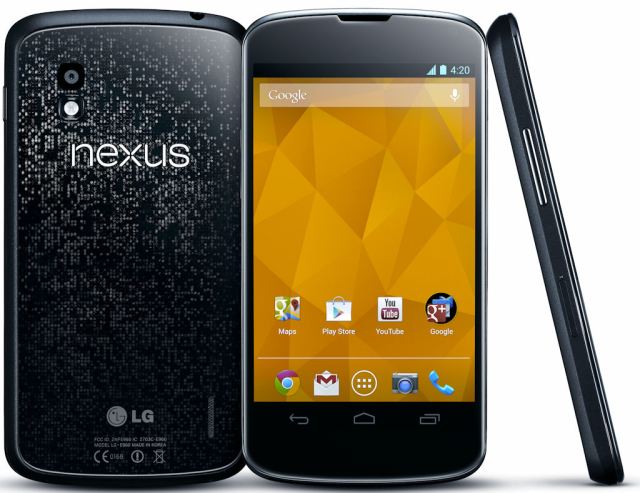Then it had a mental breakdown, and so did I. But I’m getting ahead of myself.
I feel a little dirty today. After years of holding out on principle against smart phones (or any mobile phone at all) I broke down and ordered an LG Nexus 4 with a contract that ties me down for the next 24 months. Now I’ve sold out to the Tech Gods, seduced by sleek, black lines and cool apps.
Madness!
And yet I felt strangely exhilarated when the phone arrived this morning. I opened the box to take a peek at the dark, pristine beauty of the glass body, but quickly had to cover it up again. I didn’t feel worthy, yet craved the forbidden fruit. Technology is so much more efficient and beautiful than we faulty flesh bags. That’s why beautiful, young people are portrayed in the ads, enjoying their freewheeling connectedness and urban lifestyles. I’m not handsome or young, and live in a remote rural backwater. What was I thinking? Did I dare take this alien technology out of the box and make it work? What if I got smears and fingerprints on it? What if its actual function was something merely tawdry?
I took a shower and drank a cup of tea before I could even approach the phone on something like an equal footing. But when I first lifted it out the box and felt the snug fit in my hand, the perfect weight, I knew I wanted it. And this is where the swelling music in major chords disintegrates into cacophony. Because I first had to set it up, and that meant deciphering the tiny print in the skimpy instruction manual, as well as using my fat, clumsy fingers to install the sim card.
What followed was an extended outburst of profanity, as I tried to install the card, after first dropping it on the floor. Then the set-up, during which the mood weather softened somewhat, though punctuated by some quite appalling language regarding the miniscule keypad, only to turn into a thunderstorm when I realised there was something wrong with the phone. Apart from my shitty attitude towards new technology. It would not scroll up or down in the Google apps I was playing with.
 Then the phone died, its last will and testament being that it didn’t think there was a sim card installed. The only solution was to pack it up and return it for repairs or replacement. The end of the affair, though it started going south with the sim card installation.
Then the phone died, its last will and testament being that it didn’t think there was a sim card installed. The only solution was to pack it up and return it for repairs or replacement. The end of the affair, though it started going south with the sim card installation.
Hours of wasted time, my blood pressure through the roof, and the air so blue you’d think it was a Tory Party Conference. Even now, though, I want it back. It was an extension of my hand and felt so right. Precioussss…









